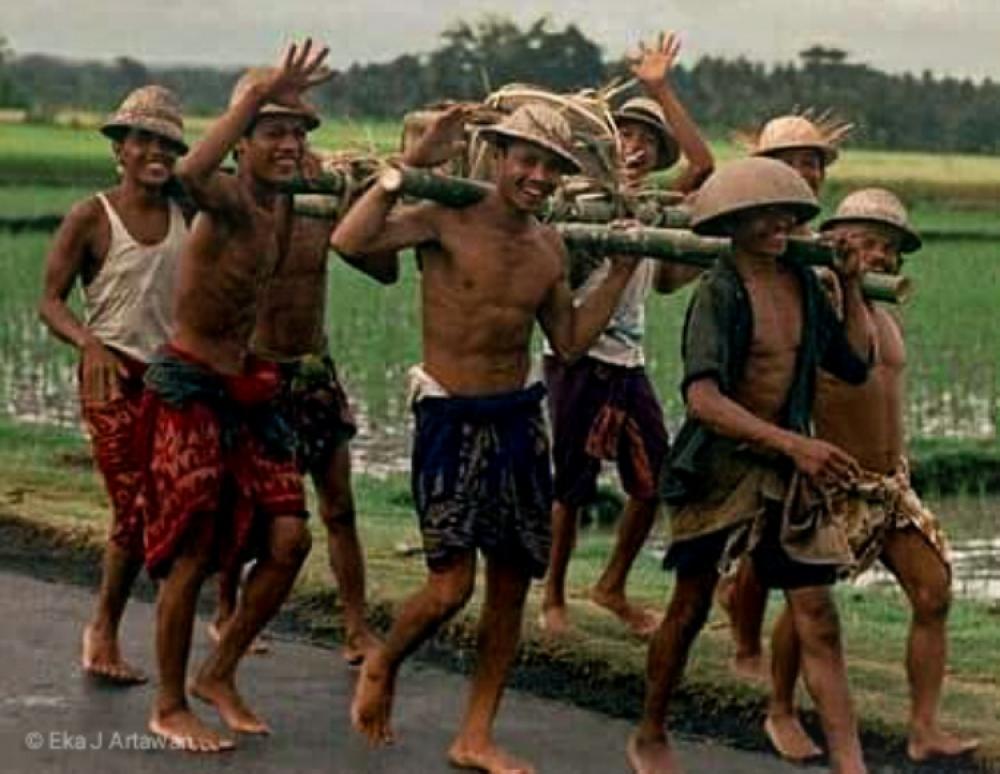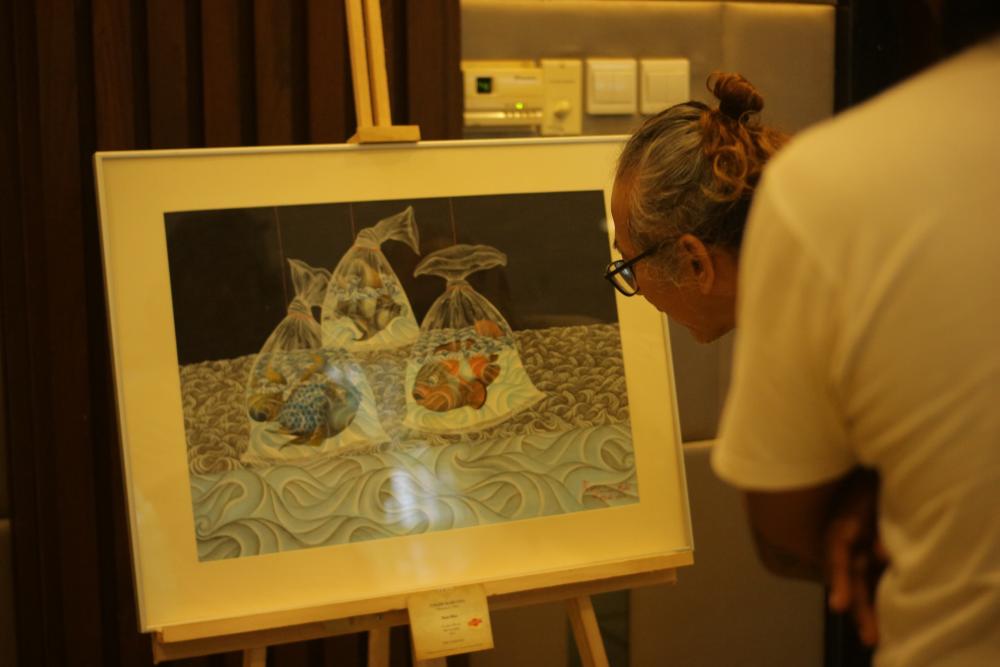Traditional Volunteerism in Bali
- 08 September 2020
- Traditional
- Bali

Denpasar, NetizenBali.com - Most of the history of volunteerism is more focused on Western societies. Extensive studies are more prevalent on the Western practices of volunteerism, whereas Eastern societies get less exposure. Take, for example, the Balinese. The Balinese, since feudal times, have upheld the act of volunteering as a means towards social cohesion through the values of ngayah and nguopin.
As pre-industrial societies have relied on mutual aid to survive and keep their communities together. The origins of Balinese volunteerism has its roots in its agrarian society and the philosophy of life, Tri Hita Karana. In agrarian Bali, communities were split into four divisions (Catur Warna): the priests, the rulers, the merchants, and the labourers. Though segmented, Balinese community had to rely on one another to hold events and ceremonies, and to simply get through life. Priests needed help tending the temple and organizing religious ceremonies. Rulers needed help tending the palace. Helping one another was (and is still) a social norm and way of life. Thus, it is contrast to the Western notion of volunteerism, which is mostly altruistic and voluntary. In Bali, volunteering is a social responsibility, or put simply, “you scratch my back, I scratch yours”.
From the smallest unit of society, the family, the values of volunteerism begin. Nguopin is the term used for people who volunteer their time and skills for the sake of other family members. And when we’re talking family in Bali, it’s not just a nuclear family; we’re talking big, extended families that live in large complex houses. Members of the family are expected to help one another prepare for big ceremonies, especially preparing the offerings. It’s not only about offerings though. If say a distant family member requires any sort of assistance, other family members are expected to come to their aid. It’s all about helping one another, or a practical implementation of pawongan in the flesh.
Volunteerism then extends to the banjar, the central node of Balinese society. When a big ceremony is on the horizon, families living within the banjar are expected to come together and help the preparations. Men usually work on providing food, such as babi guling, and constructing ceremony-related structures; while women focus on making offerings. Large-scale volunteering like this is known as ngayah, and is still an important part of Balinese life today.
Ngayah, like nguopin, is a social responsibility for the Balinese, towards God and kin. The Balinese believe that since all their skills come from God, they should use those skills to show their affection and dedication to God. Such is the basis for most artists and craftsmen in Bali, and especially those who make offerings. He who fails to answer the call of ngayah, is deemed an irresponsible man, both towards God and society.
Now you know why during every big ceremony, droves of people flood the banjar halls and work together on preparations. It’s a timeless tradition, one that gives the Balinese their uniqueness. Also, through ngayah, it becomes easier to keep people connected and society together.[Source: volunteerprogramsbali.org]












Related Articles
- Unique Ritual at Telaga Maya, Ducks Appear to Swim in Dry Waters
- Pesona Pagi di Sangkaragung, Bersepeda Menyusuri Warisan Penenun Songket
- Gambaran Video Ritual Pernikahan di Bali yang Sederhana dan Autentik
- Krama Istri Panjat Pinang, Tradisi Unik dalam Karya Agung di Desa Pulukan
- Tirta Kamandalu: taking a nectar of life in the middle of the ocean